For five days from August 8 to 12, Regional Sciences (Lecture): General Theory of Invasive Alien Species Management 2022 was held as a Hokkaido Summer Institute (HSI) 2022 course offered by Graduate School of Humanities and Human Sciences.
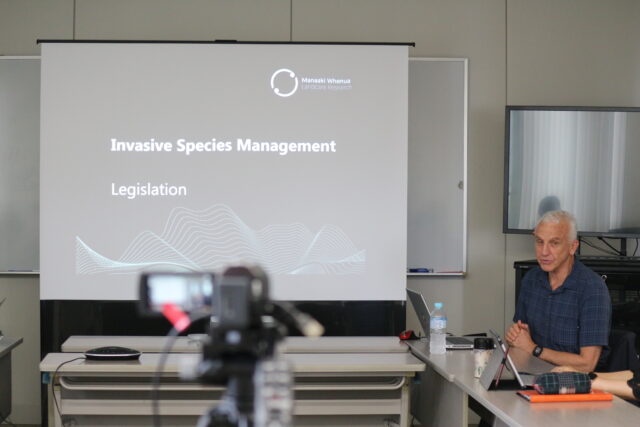
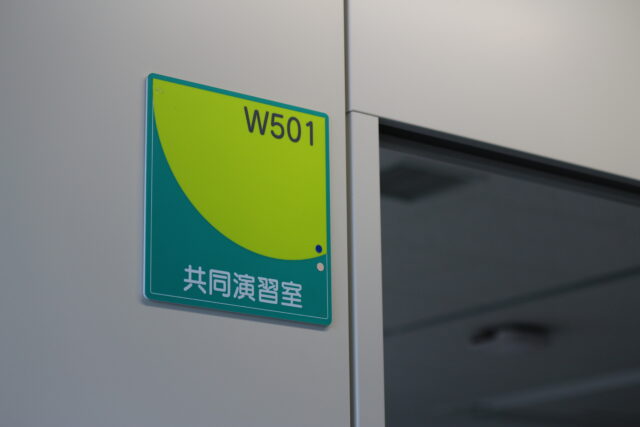
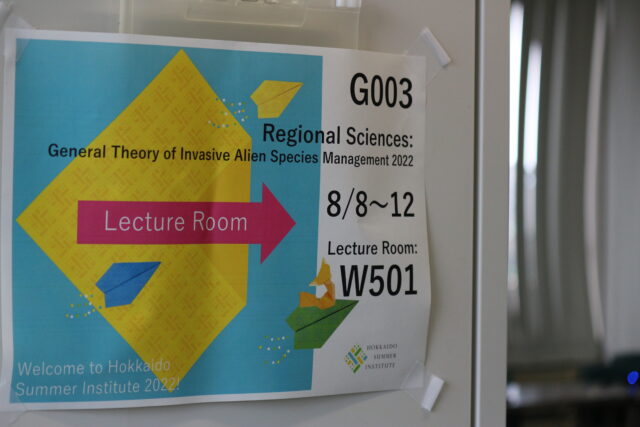
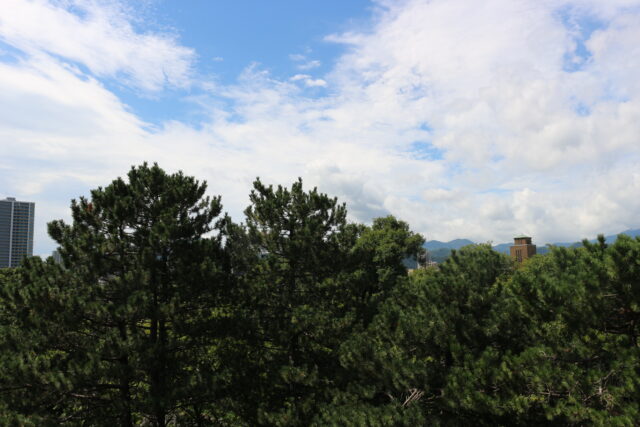
The lecturer for this course this year was Mr. Bruce WARBURTON, who is engaged in state-of-the-art research at Landcare Research (Wildlife Ecology & Management) in New Zealand. He is the successor of Dr. Phil COWAN, whom we invited as a lecturer in 2017, 2018, 2019 (cancelled in 2020 due to COVID-19), and 2021. Landcare Research was established by the Government of New Zealand, serving as a prestigious research center specializing in research on land and biodiversity. Mr. Warburton has long been engaged in research on measures for invasive alien species management and in their implementation. Through the lectures, students learned of the actual implementation examples through numerous pictures and episodes.
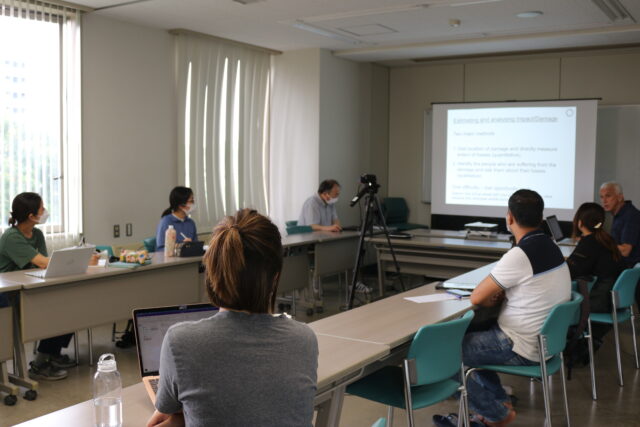
This course was geared toward graduate students, aiming to help them earn basic knowledge and skills related to the management of invasive alien species—one of the hurdles in dire need of worldwide cooperation. It was also aimed at providing knowledge of the frameworks necessary for addressing the issue of alien species in New Zealand remaining at the cutting edge of this discipline and the status quo in Japan. This was the fourth time lecture targeted at graduate students.
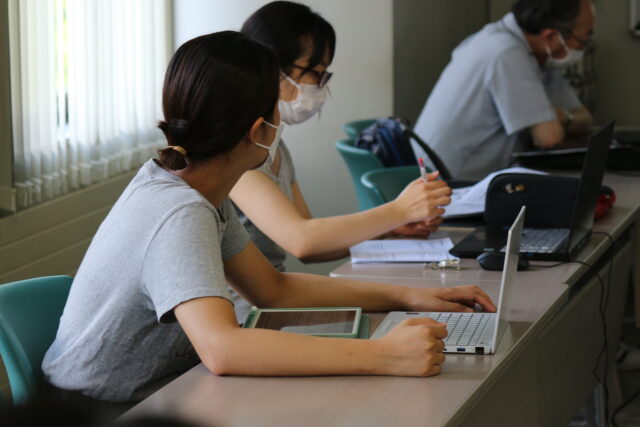
Due to the COVID-19 pandemic, the lecturer for this course last year provided online lectures from home in New Zealand, overcoming the three-hour time difference between Japan. We were delighted to welcome Mr. Warburton to Sapporo this year, who willingly took the time to travel all the way from the mid-winter New Zealand catching multiple connecting flights. With numerous slides prepared in advance, students learned about leading technology and its implementation in New Zealand. He also told students to feel free to ask questions and interact during classes and on breaks, which enabled participants to have fulfilling experiences during these five days of face-to-face lessons.
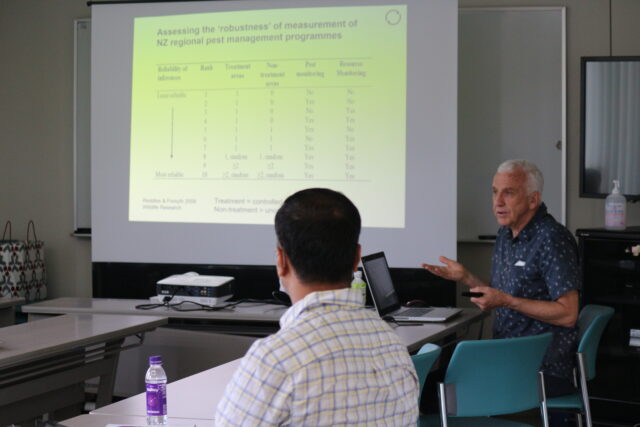
Through a wealth of images and various data, these intensive lectures held over the course of five days covered not only cases observed in New Zealand but also those in Japan and other countries, including Professor Ikeda’s research cases on raccoons. Students from overseas presented their opinions on the issue of alien species unique to their local environments. The lectures repeatedly addressed the definition of “pests” that need to be controlled and exterminated. Specific cases were shown to explain that some foreign species are labeled as harmful by humans though they do not cause any damage to coexisting flora and fauna, and vice versa.
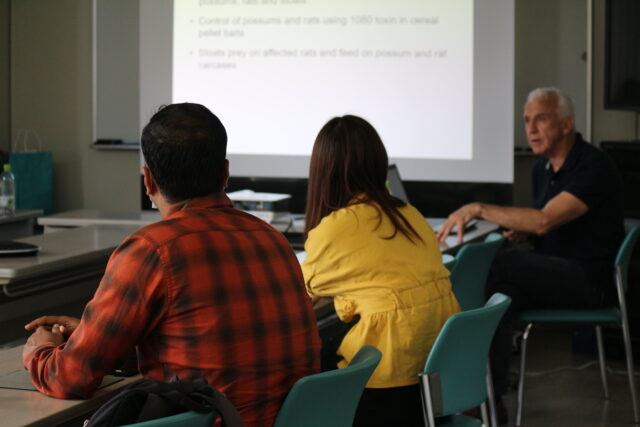
Participants not only from the Graduate School / School of Humanities and Human Sciences but also from other Schools had the opportunity to attend lectures and exchange opinions with their peers overseas, which is rare in their usual classes, thus making this a valuable experience.
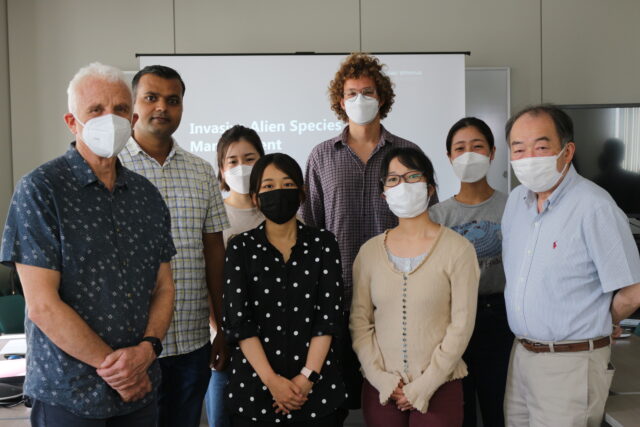
This course, through which students could learn directly from researchers about the latest information on invasive alien species management and the implementation of countermeasures against them, will also be offered next year by Mr. Bruce Warburton from Landcare Research in New Zealand.


